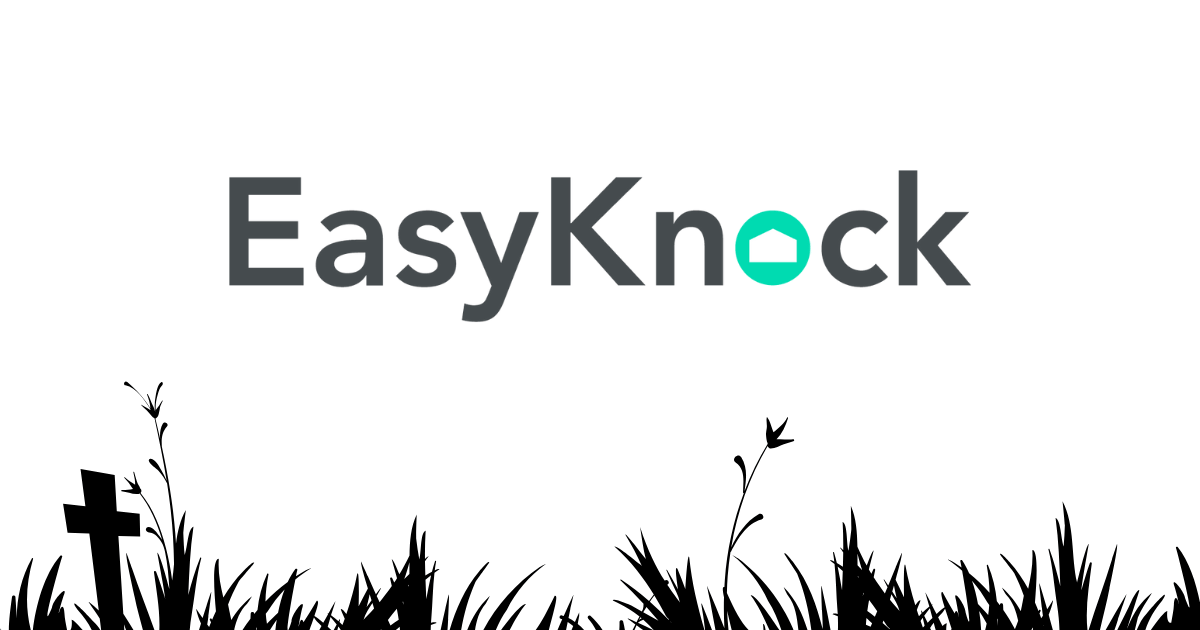
Founded in 2016, EasyKnock was once a leading real estate technology (PropTech) startup offering homeowners a unique way to extract home equity via sale-leaseback programs. By December 6, 2024, however, the company abruptly shut down, citing mounting legal scrutiny and regulatory challenges. Below is a comprehensive look at EasyKnock’s trajectory, the factors behind its closure, and the lessons the real estate industry can glean from its downfall.
Business Model and Operations
Sale-Leaseback Programs
EasyKnock’s flagship product was “Sell & Stay,” which let homeowners sell their properties at market value, receive up to 75% of that value in cash, and remain in the home as renters for up to five years. This model was designed to serve:
Homeowners with Limited Financing Options: Individuals unable to qualify for traditional HELOCs or reverse mortgages due to credit or income constraints.
Flexibility Seekers: Clients who desired immediate liquidity without relocating.
Alternative Home Equity Access
Positioning itself as a non-traditional path to home equity, EasyKnock also promoted offerings like “MoveAbility,”which gave sellers up to 12 months of rental tenure post-sale—aimed at homeowners planning a future relocation or purchase.
Market Position and Growth
Venture Backing
EasyKnock raised over $400 million in equity and debt, including a $28 million Series D in early 2024. The company’s annual revenue was estimated to be between $10 million and $50 million, demonstrating a notable market footprint.
Customer Demographics
Data on EasyKnock’s transactions reflected typical purchase prices around $245,000, focusing on single-family homes in established neighborhoods. Their clientele often had lower net worth and fell within the 40-60 age bracket.
Expansion Efforts
EasyKnock ventured into partnerships to broaden its offerings (e.g., credit-building programs for renters) and explored new states to grow its sale-leaseback business model.
Legal and Regulatory Pressures
Despite its initial success, EasyKnock faced escalating scrutiny and consumer complaints in the months leading to its closure:
Consumer Lawsuits
Multiple states—including Texas, Maryland, South Carolina, Pennsylvania, and Ohio—saw homeowners alleging deceptive practices and unfair terms in EasyKnock’s lease agreements.
Regulatory Actions
Massachusetts Settlement (Dec 2023): Forced EasyKnock to halt operations in the state and pay $200,000 in penalties.
Michigan Cease-and-Desist (May 2024): Cited misleading marketing and “deceptive business practices,” a key blow to EasyKnock’s operations.
Industry Concerns
Consumer advocates questioned the transparency of EasyKnock’s sale-leaseback contracts, with some labeling them as high-cost or predatory for homeowners unable to obtain traditional financing.
Shutdown Announcement
On December 6, 2024, EasyKnock abruptly declared it would cease all operations. The company’s website went offline, leaving only a statement assuring existing customers that service arrangements would be honored through transitional agreements.
Key Lessons and Takeaways
Regulatory Compliance Over Innovation Alone
Building innovative home equity solutions without robust consumer protections can invite lawsuits and regulatory crackdowns, as EasyKnock discovered.
Clarity in Consumer Contracts
Complex or vague terms in lease agreements may lead to accusations of deceptive marketing—startups should prioritize transparency in user-facing documents.
Funding Does Not Guarantee Sustainability
Despite raising substantial capital, EasyKnock could not withstand legal challenges. Adequate due diligence and proactive compliance measures are essential for long-term viability.
Market Trust Is Fragile
In real estate, trust is paramount. Negative headlines, state-level penalties, and consumer lawsuits can rapidly erode confidence in a budding niche service like sale-leaseback.
EasyKnock Scorecard
Dimension | Score | Reasoning |
|---|---|---|
Product-Market Fit | 4/5 | EasyKnock’s sale-leaseback model addressed a clear need for homeowners with limited financing options, but consumer mistrust and regulatory scrutiny undermined its fit over time. |
USP | 4/5 | Its innovative approach to unlocking home equity through sale-leaseback programs was unique in the PropTech space, offering flexibility for cash-strapped homeowners. However, perceived predatory practices hurt its appeal. |
Timing | 3/5 | The timing was right, with demand for alternative financing models growing, but the regulatory environment tightened, exposing vulnerabilities in EasyKnock’s operations. |
Founder Fit | 3/5 | The founding team had a strong understanding of real estate and financial products, but execution and compliance missteps highlighted gaps in regulatory foresight. |
Team (Execution) | 3/5 | The team scaled quickly and secured significant funding, but legal challenges, consumer dissatisfaction, and unclear contract terms highlighted operational inefficiencies. |
Conclusion
EasyKnock’s story underscores the delicate balance between offering groundbreaking financial products and maintaining strict compliance and consumer trust. Its sudden closure stands as a cautionary tale for PropTech ventures exploring alternative financing routes for homeowners. While the concept of sale-leaseback may persist, EasyKnock’s collapse highlights the importance of regulatory foresight, transparent client relationships, and sustainable business practices in shaping the future of real estate innovation.
I hope this story highlights the perils in regulatory oversight for startups and help you plan your startup better.
It took a lot of time in putting together this post and I appreciate if you forward this someone who could benefit.
Cheers,
Ram

👉 My simple ask: Forward this to someone who needs to read or show appreciation by sharing on your social channels 🙏.
Startup Obituary is for educational purpose only not a business advice.
